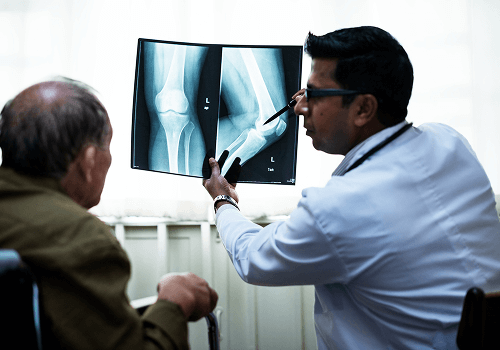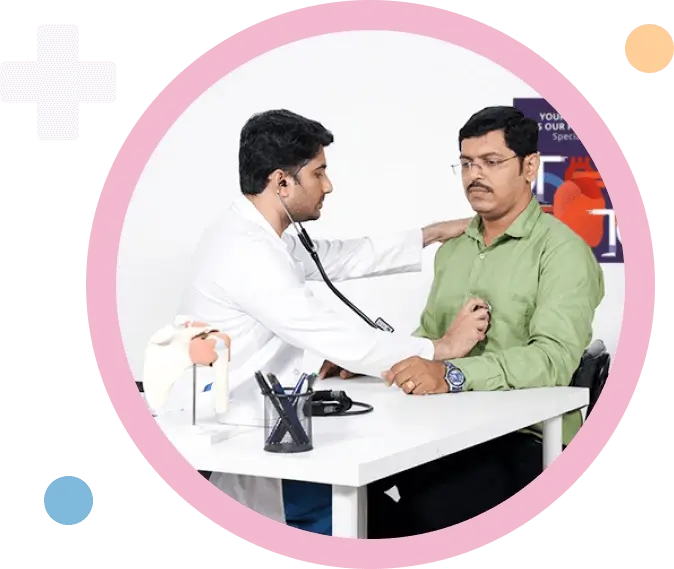Introduction
We all have someone in our family with knee pain, back pain, or shoulder pain.
What begins as occasional discomfort gradually starts to impact day-to-day activities and hinder overall well-being. At times, this pain can be so debilitating that it can cause patients to become bedridden.
Pain medications may provide temporary relief for them; however, they are not a permanent solution.
So, what is the solution to this? Could focusing on improving bone health be the key to tackling this problem? Read more to find out.
Prevalence of Orthopaedic Problems in India

Many studies suggest that Indians are predisposed to poor bone health, and there are multiple reasons for this. Vitamin D and calcium deficiency, smaller skeletal size, lifestyle factors, socioeconomic factors, increasing age, and lack of awareness can contribute to poor bone health and increased prevalence of various orthopaedic conditions among Indians.
Let’s explore the top 10 most common orthopaedic conditions, their symptoms, and available treatments.
10 Most Common Orthopaedic Conditions and Their Treatments
The following are some of the most common orthopaedic problems in India. The prevalence may slightly vary among different age groups. The key to effectively managing these conditions lies in finding the right orthopaedic specialist who carefully evaluates the case and recommends individualised treatment approaches.
1. Osteoarthritis
Osteoarthritis is one of the most common orthopaedic conditions, especially in older individuals. It develops when the cartilage in the joints wears out over time.
This condition results in pain, stiffness, and swelling. This condition is commonly seen in the joints of the knees, hips, and hands.
Treatment: Weight management, physiotherapy, pain medications, and joint replacement surgery when the above treatment fails.
2. Rheumatoid Arthritis
This autoimmune bone and joint disorder causes inflammation of the lining of the joints, leading to pain and deformity in the joints. Unlike osteoarthritis, it can affect people of any age and usually impacts multiple joints.
Treatment: Anti-inflammatory medications, disease-modifying antirheumatic drugs (DMARDs), and physical therapy.
3. Osteoporosis
Osteoporosis, a silent disease weakening bones and making them fragile, is prone to fractures. It mainly occurs in postmenopausal women and older adults.
Treatment: Calcium and vitamin D supplementation, lifestyle modification, drugs to improve bone density, and weight-bearing exercises.
4. Tendinitis
Tendinitis is the inflammation or irritation of the tendons, thick fibrous cords attaching muscle to bone. Common sites include the shoulder (rotator cuff), the elbow (tennis elbow), and the heel (Achilles tendon).
Treatment: Rest, ice, anti-inflammatory drugs, corticosteroid injections, and physiotherapy.
5. Carpal Tunnel Syndrome
This condition compresses the median nerve in the wrist, leading to numbness, tingling, and weakness in the hand.
Treatment: Wrist splints, ergonomic adjustments, corticosteroid injections, or surgical release if symptoms persist.
6. Fractures
Fractures, or broken bones, arise from trauma, falls, or weakened bones due to conditions such as osteoporosis.
Treatment: Ground immobilisation through various external devices, such as casts or braces; surgical stabilisation, including rods or plates; and a course of physical therapy.
7. Dislocations
Joint dislocations occur when bones are displaced from their normal position. Shoulders, fingers, elbows, and knees are commonly affected.
Treatment: Manual repositioning (reduction), immobilisation, pain relief, and rehabilitation exercises.
8. Bursitis
Bursitis refers to the inflammation of tiny, fluid-filled sacs known as bursae. These sac-like structures are distributed where there are close interactions, such as over joints - for instance, near the hips, knees, or elbows.
Treatment: Rest, ice, anti-inflammatory medication, physical therapy, and, in certain cases, aspiration of excess fluid.
9. Herniated Disc
Herniation of the disc occurs when the soft pad of tissue between the little bones of the spine pushes outward to press upon nearby nerves, causing pain in the neck or back.
Treatment: Pain medications, physical therapy, epidural steroid injections, and, in some cases, surgery.
10. ACL Tears (Anterior Cruciate Ligament)
ACL injuries are common in athletes and involve tearing one of the major ligaments in the knee. Symptoms include a popping sound, swelling, and instability.
Treatment: Rest, bracing, physical therapy, and surgery in cases of complete ligament rupture.
Orthopaedic Treatment Options

Treatments for common orthopaedic problems are recommended depending on severity, age, lifestyle, and associated comorbidities. Fortunately, experience in the orthopaedic treatment field has enabled better recovery and improved outcome success than ever before.
Here are some of the key treatment approaches:
1. Medication Management
Bone and joint disorders are treated with anti-inflammatory medications, painkillers, corticosteroids, and disease-modifying drugs (especially in arthritis and autoimmune disorders).
2. Physical Therapy
Physical therapy plays a pivotal role in joint and bone care. It restores strength, flexibility, and joint functions. Its principal application is in post-surgical or post-injury rehabilitation.
3. Minimally Invasive Surgery
Procedures like arthroscopy, spine fusion, etc., allow surgeons to diagnose and treat orthopaedic conditions with smaller incisions, resulting in faster recovery and less pain.
4. Joint Replacement Surgery
In cases of advanced osteoarthritis, orthopaedic specialists often consider joint replacement surgery for joints of the hips and knees. This positively impacts the quality of life for patients.
5. Lifestyle and Preventive Care
Managing weight, staying active, practicing good posture, and taking appropriate supplements can help prevent or slow down many common orthopaedic problems.
Choosing the Right Orthopaedic Specialist

Choosing the right orthopaedic specialist is essential for accurate and timely diagnosis and treatment. Choosing the best orthopaedic hospital is also equally important.
As a leading orthopaedic hospital in Bhavnagar, HCG Hospitals offers patient-centred care for various orthopaedic conditions. The hospital is equipped with modern diagnostic and treatment facilities and a team of highly experienced experts to create a seamless treatment experience for patients.
When selecting a hospital, consider factors such as:
- Experience and specialisation of the orthopaedic specialists
- Availability of modern diagnostic tools and surgical facilities
- Feedback from patients who have received treatment there
- Hospital accreditation
- Post-treatment support and physiotherapy services
Conclusion
Orthopaedic conditions can drastically affect one's quality of life, but early diagnosis and proper orthopaedic management can lead to recovery in most patients or, at least, reduce the severity of symptoms. Learning about different bone and joint disorders, their risk factors, symptoms, treatment options available, and their preventive measures is the first step toward maintaining optimum bone health.
In the case of bone-related symptoms such as pain and swelling, one must see an orthopaedic specialist for necessary care and support.






